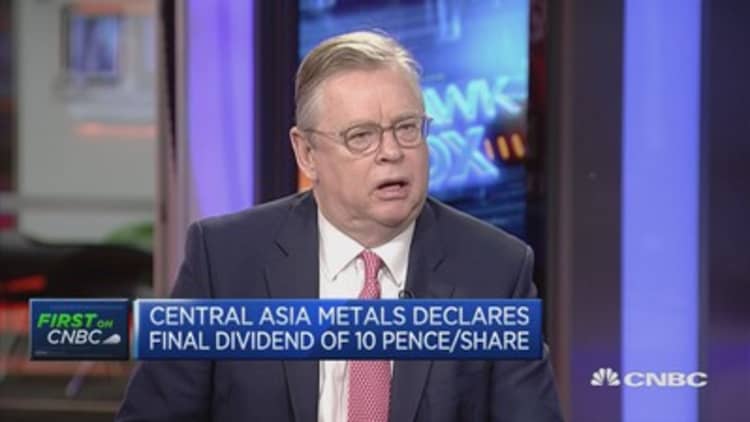A controversial Chinese copper mine in Afghanistan has run into complications after the executive leading the $3 billion project was expelled from the Chinese Communist Party for corruption.
Shen Heting, the former general manager of the state-owned China Metallurgical Group Corporation (MCC), in 2007 signed a 30-year lease to build a open-pit copper mine in a place called Mes Aynak.
The site is occupied by a 5,000-year-old, walled Buddhist city, and China's determination to extract copper from the area has drawn sharp criticism from archaeologists and others. China has a big appetite for copper, an industrial metal whose price has risen more than 23 percent in the last 12 months.

Security concerns have delayed work on the project since 2007, and copper has yet to be mined from the area. The United States and other Western nations have been fighting fundamentalist insurgents in Afghanistan since 2001.
According to the documentary film "Saving Mes Aynak," the mine would in effect destroy the ancient city, though MCC and the Afghan government claim that they will "move" the city in order to extract the more than $100 billion of copper deposited directly beneath it.
CNBC was unable to reach MCC for comment via phone or email. The Chinese embassy in Kabul did not immediately respond to a request for comment.
If completed, the Chinese copper mine would be a major source of revenue and employment for Afghans, according to Afghanistan's Ministry of Mines and Petroleum.
Expulsion is a career-ender
Shen's expulsion from the Chinese Communist Party is a "huge development," according to Brent Huffman, the director of "Saving Mes Aynak."
"It shows that the Chinese government acknowledges the extremely high levels of corruption at play within the Chinese government-owned mining company MCC," Huffman said.
The exact nature of Shen's alleged corruption was unclear. Being ousted from the Chinese Communist Party effectively ends the careers of any Chinese officials who encounter that fate.
Shen's expulsion has aroused "immense skepticism" within the Afghanistan government concerning the copper contract, according to Huffman. The director added that he is hopeful that the corruption charges mean the end of the mining project.

